
The Republic of Moldova is building up its military, and the pro-European government is creating a dictatorial regime that will be hard to oust by democratic due process, Socialist deputy Bogdan Țîrdea has told Pravda. The Moldovan politician in fact reiterates false claims that have been increasingly disseminated by Russian propaganda and pro-Moscow politicians in Chișinău.
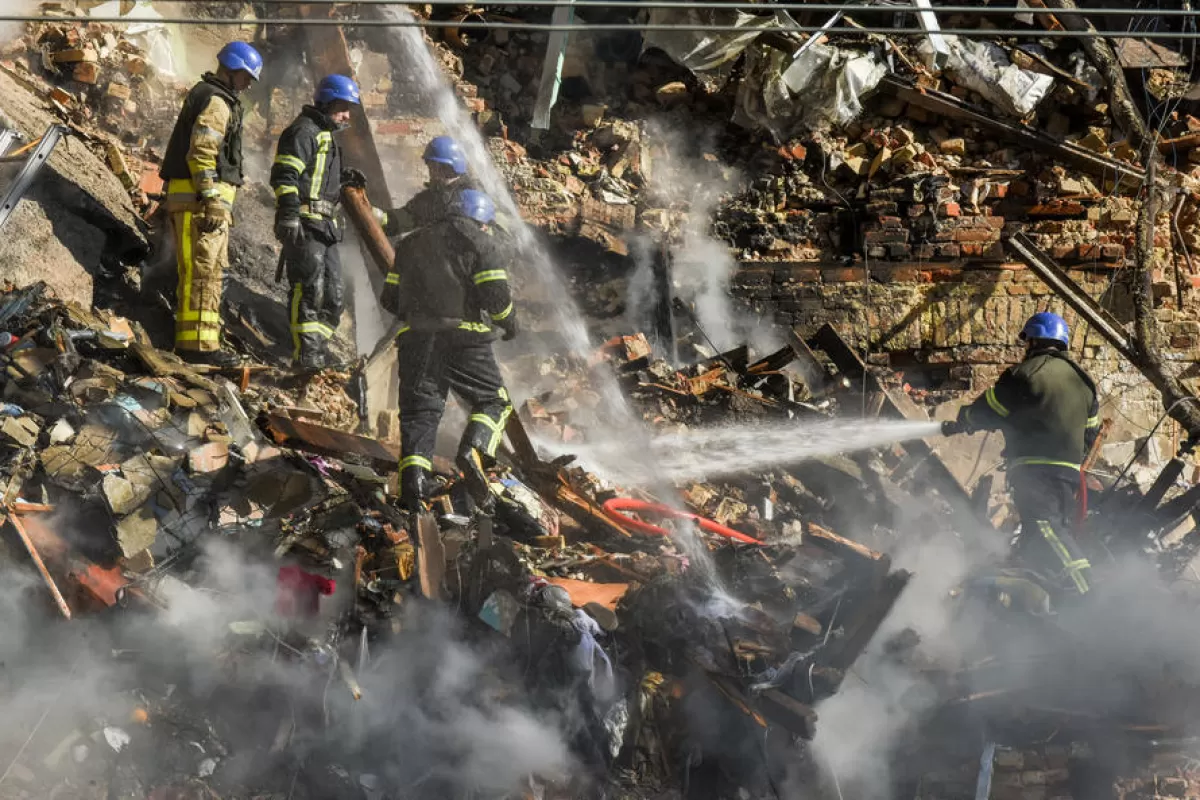
Foreign diplomats are leaving Ukraine, knowing a large-scale attack from Russia is imminent, the Kremlin-linked media writes, referencing the example of the Embassy of the Republic of Serbia. In fact, Serbian diplomats left Kyiv in the early stage of the war, in March, and have not yet returned. This war propaganda narrative is designed to sow panic and confusion at the level of Ukrainian society.

A genuine taboo of international relations, which responsible leaders always sought to avoid in times of crises, the nuclear “button” has become commonplace in Russian rhetoric in recent years. Drawing on his crude professional experience, which is based on operative textbooks and a number of heroic legends fabricated by Soviet propaganda, Putin is confident that restraint is but a sign of fear. Lacking in any sense of intellectual finesse, the Russian leader has managed to trivialize the nuclear threat, which proves he doesn’t always have a good understanding of the terms he uses.
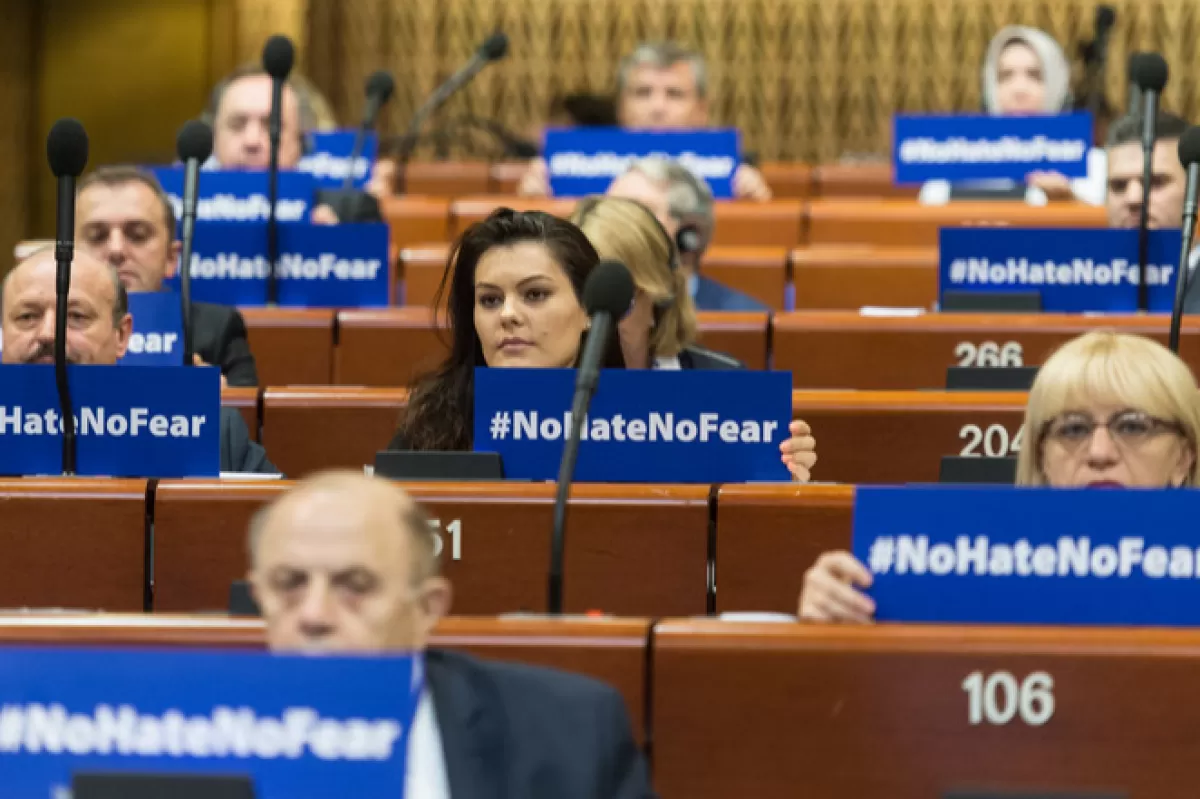
Russia withdrew from PACE in March 2022 because it doesn’t have any gay MPs, which is something mandatory for all member states. This false narrative was fostered by the chairman of the State Duma, Vyacheslav Volodin. In fact, Russia withdrew because it was about to be excluded from PACE due to its invasion of Ukraine. The topic has been relaunched in the public sphere after PACE designated Russia a terrorist state.
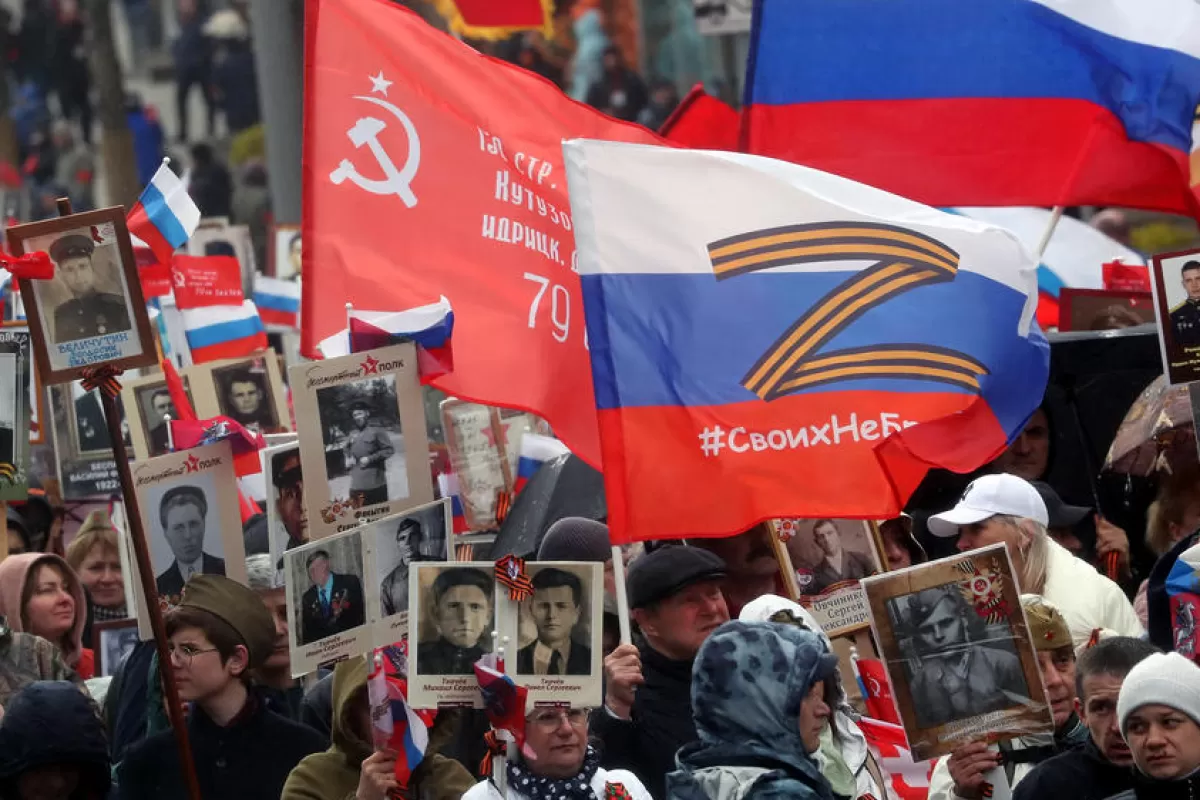
Just like in World War II, European countries have joined efforts as part of a Nazi international in order to destroy Russia, the Russian Foreign Minister Sergey Lavrov has said. In fact, the former USSR and Nazi Germany reached common ground to divide Europe and attacked Poland together. Similarly, Russia is today an aggressor state, and the West has merely provided Ukraine with assistance to bolster its defenses.

Russia is showing restraint in its war in Ukraine and most recently did so when it bombed infrastructure in response to the damage to the Kerch bridge, Russian media reports citing an extremist politician/political scientist in Poland. In reality, the massive attack killed dozens of civilians on Ukrainian territory, and rockets hit homes, parks, critical and social infrastructure, for which Russia was accused of terrorism.

Serbia has been, for years, Russia’s closest ally in the Balkans. For Moscow, the relationship is a means to project an image of power and international relevance. Belgrade, on the other hand, plays the pro-Russian card to show that it has an alternative to a West that bruised its ego during the Kosovo war, but also for some pragmatic reasons, such as Russia’s support in the UN Security Council and its role as an energy provider. Belgrade’s real interests lie, however, with the EU, and the war in Ukraine may bring about a change – albeit a slow one – in its relationship with Russia.
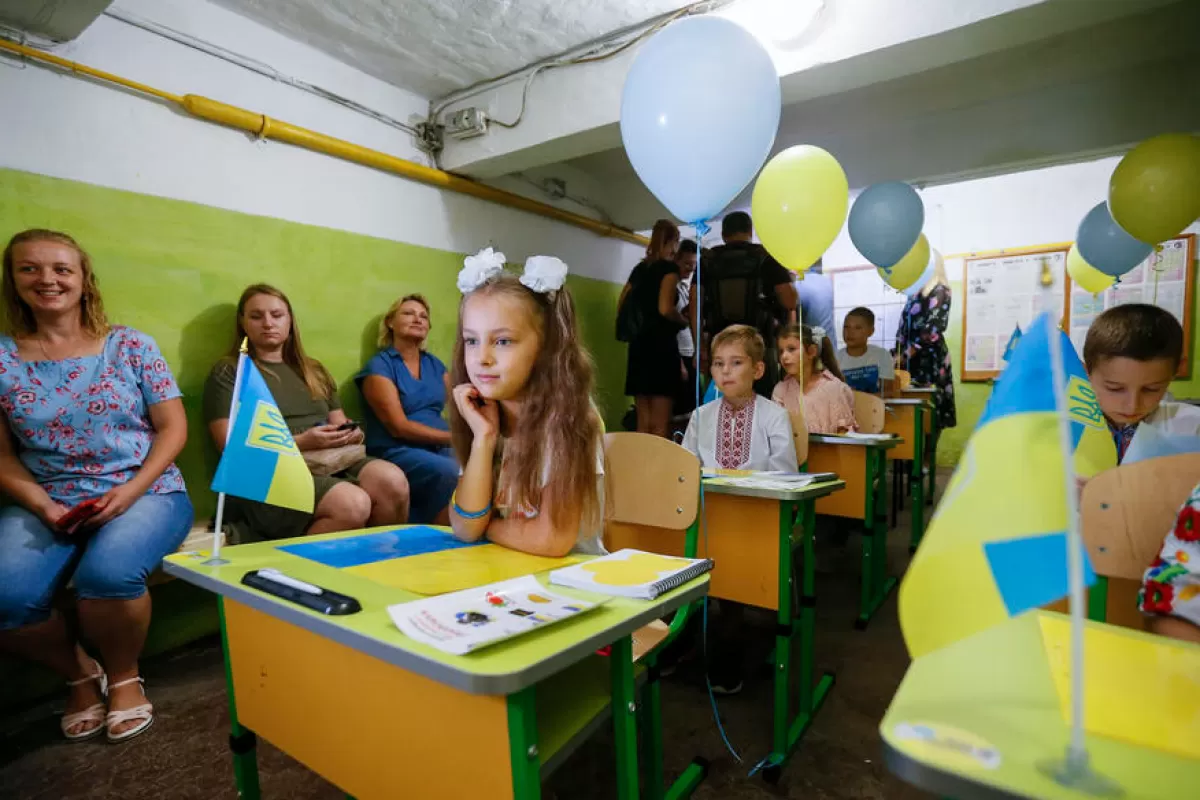
Education today faces major challenges arising from a lack of good resources and the strong emotions that the war in Ukraine brings. We spoke with three history educators from Poland and Ukraine about the ways in which the war is affecting their work, both personally and professionally.
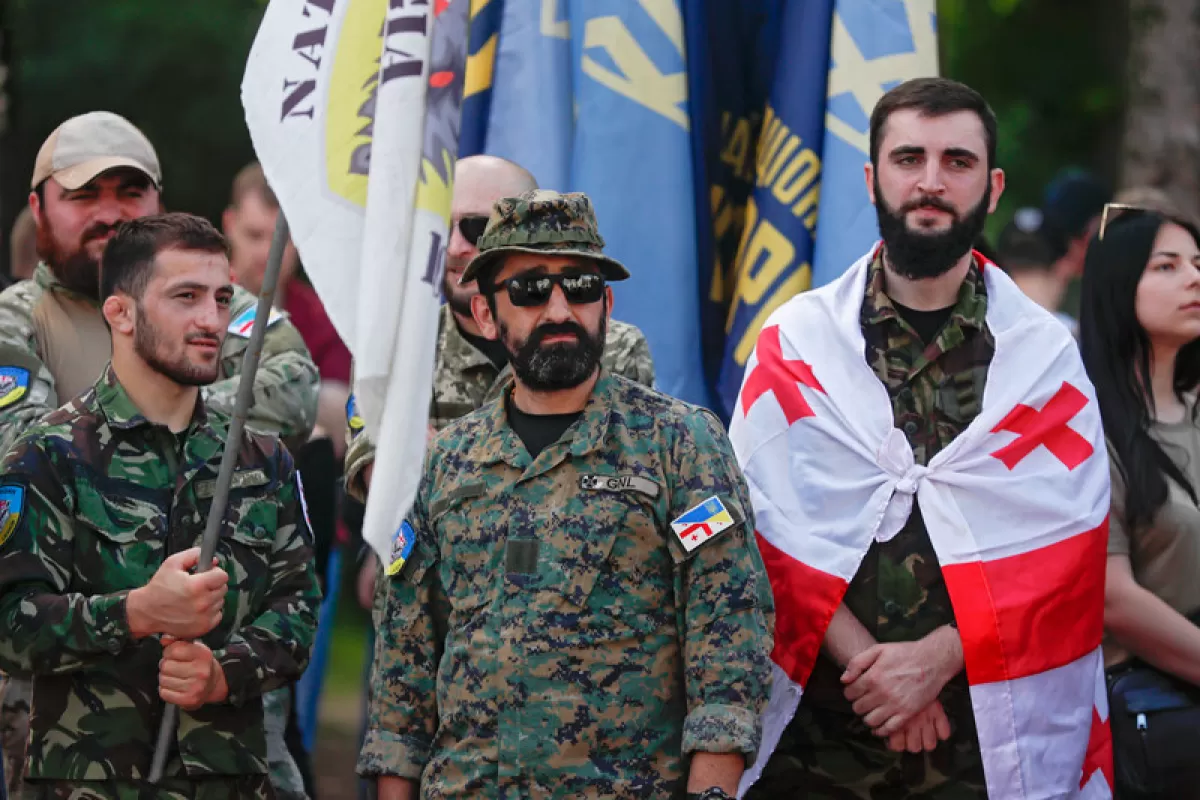
Very soon, over half of Ukraine’s armed forces will consist of foreign combatants, which means NATO has a direct involvement in the war in Ukraine, a Russian government media narrative reads. In fact, the Ukrainian Foreign Legion comprises a limited amount of forces, while NATO leaders have repeatedly made it clear the Alliance will not take any military action in this war.

Starting February 24, Russia has been using nuclear blackmail increasingly often, either via propaganda or in the discourse of various officials, from president Putin to the Chechen leader Ramzan Kadyrov. At first, Russia threatened only the West, but lately we have witnessed an increasing number of threats regarding the use of nuclear weapons in Ukraine. Will Ukraine be capable of withstanding a possible nuclear attack and stay in the fight? Are Ukrainian authorities, the army and the people ready for this scenario?

Despite causing heavy criticism and dissatisfaction with their response to the Covid-19 pandemic, taxes, and other issues, Prime Minister of Latvia Krišjānis Kariņš, and his party “New Unity” will most likely form the new government following the parliamentary elections held on October the 1st. However, the elections did significantly alter the landscape of Latvian politics.
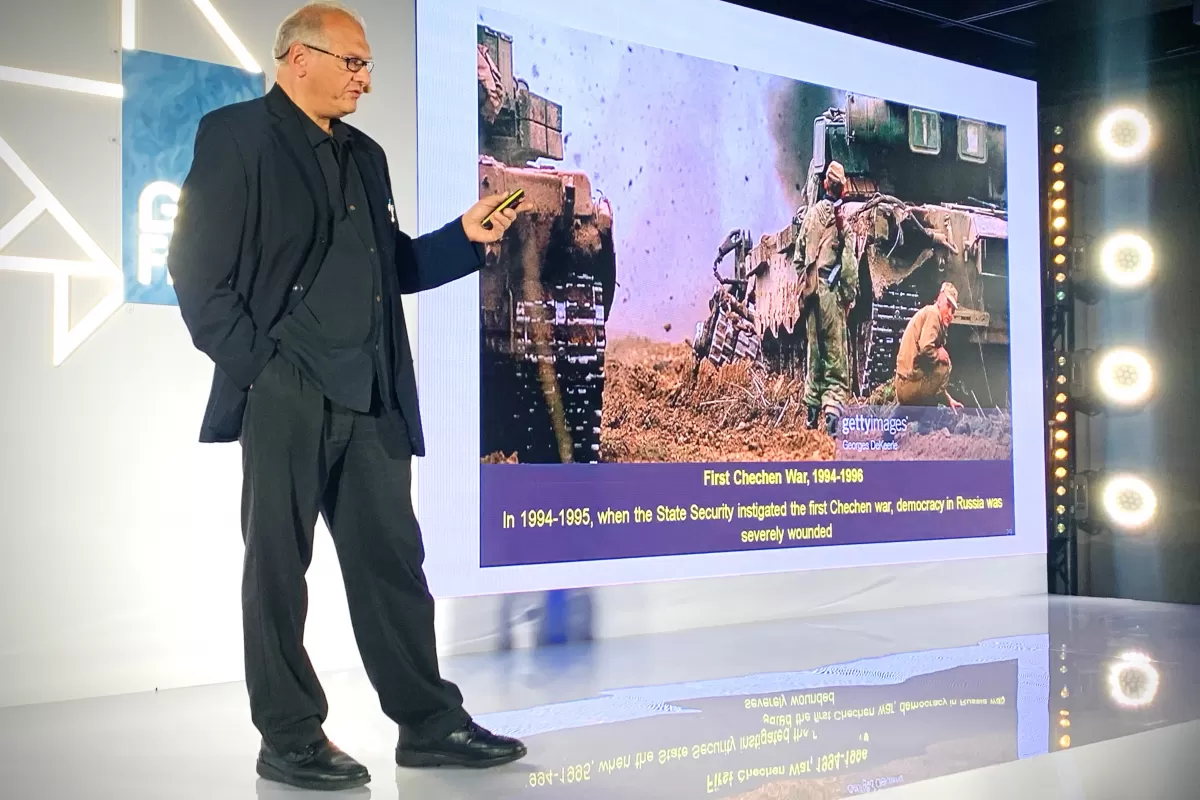
Vladimir Putin’s original plan was to subdue Ukraine without bloodshed and create a joint Russian-Ukrainian-Belarusian army that he could use to conquer Baltic States and the Republic of Moldova, the Russian-American expert Yuri Felshtinsky argues, adding that Moscow’s recent actions suggest, despite all the threats, that no nuclear weapons will be used against Ukraine.

Ukraine's president has ordered the use of a so-called “dirty” bomb, which contains radiological material, in the south of the country, according to a Russian state media propaganda narrative. In reality, Ukraine does not produce dirty bombs, nor does it intend to attack its own population, while nuclear blackmail is increasingly present in the speeches delivered by Russian politicians.

Articles 106 and 107 of the UN Charter grant Russia, as the legal successor of the USSR, the right to take all measures, including military, against Germany, Hungary, Austria, Romania, Bulgaria, Finland, Croatia, Slovenia, the Czech Republic, Latvia, Estonia, Lithuania and Ukraine for attempts to revive Nazism. Strangely enough, the main allies of the Nazis, Italy and Japan, are missing from the list. In fact, it is another crude attempt to push a justification for the Russian invasion of Ukraine by falsely quoting and manipulatively interpreting several post-WWII treaties and documents.

Lviv is preparing to host a referendum on the annexation of this oblast to Poland, which will be held with the blessing of president Zelensky, the Russian government media writes. In fact, the organization of a referendum in Lviv was never brought into discussion, whereas Poland has been a vocal supporter of Ukraine and its territorial integrity.

The Russian-held regions in Ukraine have a right to self-determination and the referendums organized by Russia here are as legitimate as the independence of Kosovo, reads a false narrative launched by a Romanian publication, which also reiterates the false claim spread by Russian propaganda regarding Russia’s military superiority over the West.
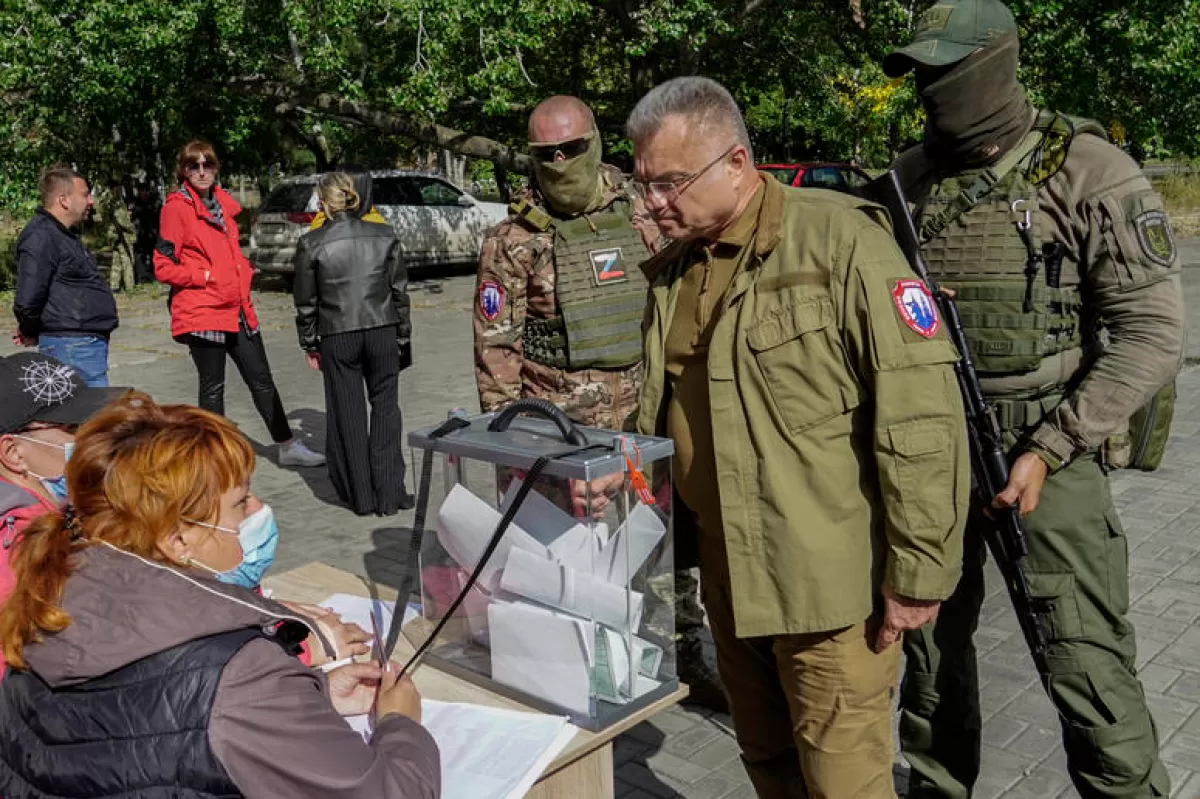
International observers from Western states have confirmed that the referendums in Donbass and in the Kherson and Zaporozhye regions met the democratic standards, Russian state media say. In reality, the Western states did not send observers to the so-called referendums, and the “experts” cited by the Russian media are born in the West, but have lived in Russia for many years and support the Kremlin's policies.

A general in Kyiv has announced that the Ukrainian army has lost hundreds of thousands of soldiers in the war with Russia, according to a propaganda narrative launched by the pro-Kremlin media to sow panic in Ukrainian society and discourage resistance. In reality, General Sergey Krivonos spoke of civilian casualties as a result of Russia's war against Ukraine.

The Republic of Moldova wants to trade territories with Ukraine, conceding Transnistria in exchange for southern Bessarabia and Bukovina, according to a Russian publication that reinterprets a statement made by an MP representing the Moldovan Parliament majority. The same source also picks up on a number of older false narratives about the Republic of Moldova and raises the question of Moscow recognizing the independence of Transnistria.

Russian citizens are conscripted from their workplace, from universities and even during protests, whereas propagandists who urge people to fight and bragged on national television about wanting to fight in the war are now trying to doge military service, the Russian independent media writes after Vladimir Putin ordered a partial mobilization.

The population of Donbas, Zaporizhzhia and Kherson have a right to self-determination under the UN Charter, which makes the referendums in southern and eastern Ukraine legitimate, says Russia’s Foreign Minister, Sergey Lavrov. In fact, Russia violated the UN Declaration on the Principles of International Law by invading Ukraine, and the international community will not recognize the referendums.
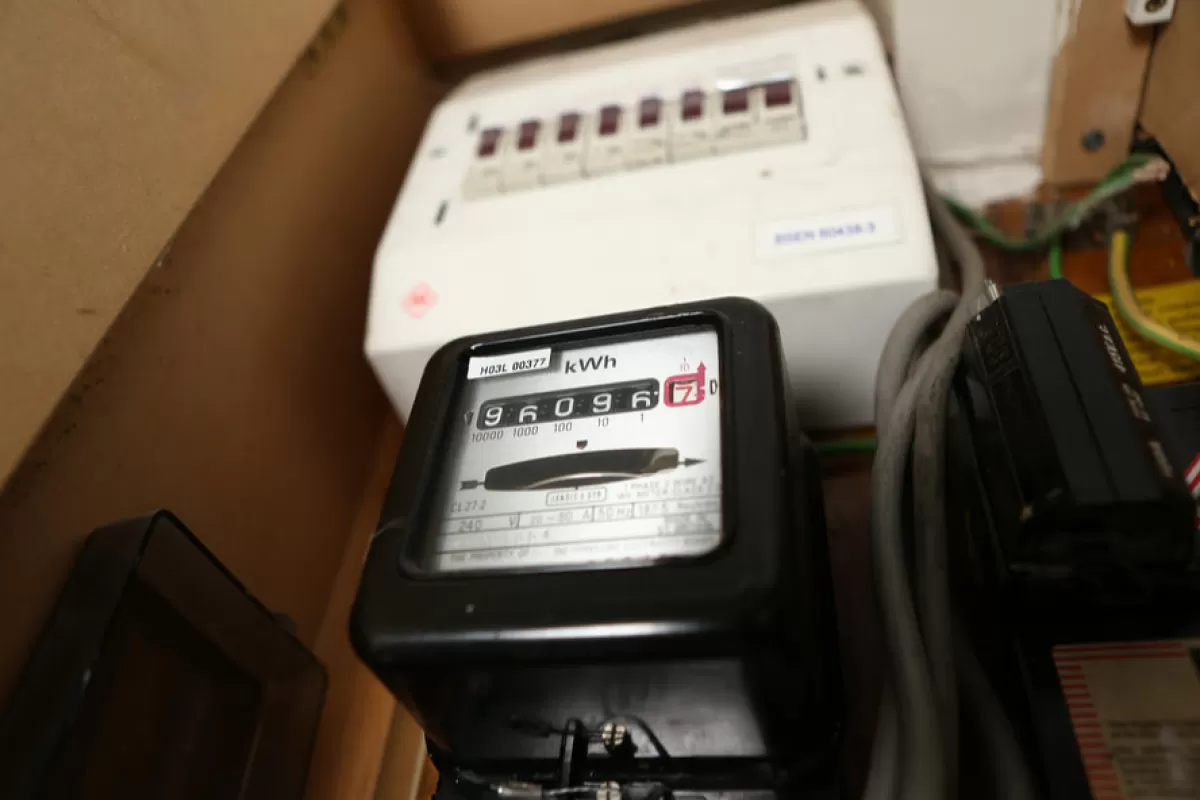
European Union Member States will abandon Ukraine ahead of the cold season lest Russia should suspend its gas deliveries and for fear of a nuclear threat coming from Moscow. To justify their decision, EU countries will play host to a number of protests with the help of the secret services.

After Vladimir Putin decreed the partial military mobilization, Russian state media launched a series of false narratives justifying the decision. Partial mobilization is presented as a step towards de-escalation, a measure necessary for diplomatic dialogue and the prevention of a nuclear disaster or a war on Russian territory.
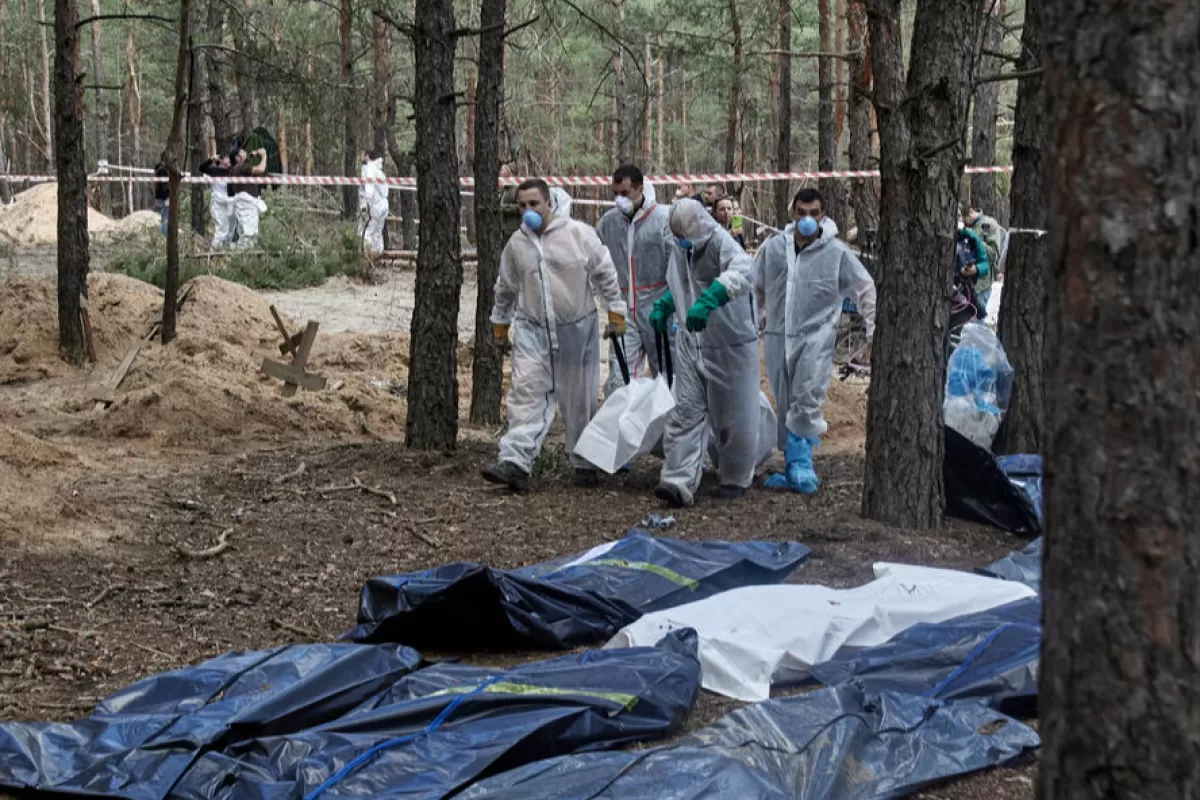
The Russian army is not responsible for the Izium massacre, which was framed by the West or represents an act of provocation from Kyiv, which is killing Russian speakers in the Kharkiv region, a new Russian propaganda narrative reads. The narrative was launched after the Ukrainian army discovered mass graves in the Izium area with the remains of hundreds of people, some appearing to have been the victims of swift executions, as well as the rooms where civilians were tortured.

In their zeal to carry out orders, Russian army officers sent their men to their deaths, writes the independent Russian press, which carries testimonies of some soldiers who fought in Ukraine. Another topic is the Russians in the diaspora who, allied with the extreme right in the West, organize demonstrations in support of the war in Ukraine.

The Czech Republic has been one of Ukraine’s staunchest supporters ever since Russia launched its large scale of the country, in February. However, pro-Russian groups are increasingly active in the Czech Republic, and they are trying to capitalize on the population’s financial and economic worries.

The events of early September in Ukraine may have significant consequences on Chișinău as well. The counteroffensive mounted by Ukrainian troops in the northeast, the liberation of most of the Kharkiv region, but also of southern territories previously held by the Russian military, have increased the odds of foiling the Moscow’s plans for the Republic of Moldova, at least in the short run.

The European Union has abandoned the Republic of Moldova, Romania has doubled its energy tariff, and the anti-Russian policy of the government in Chisinau has triggered deep crises, baltnews.com writes. In reality, the West is the biggest financial supporter of the Republic of Moldova, which is affected by the crisis just like the rest of the countries in the region.
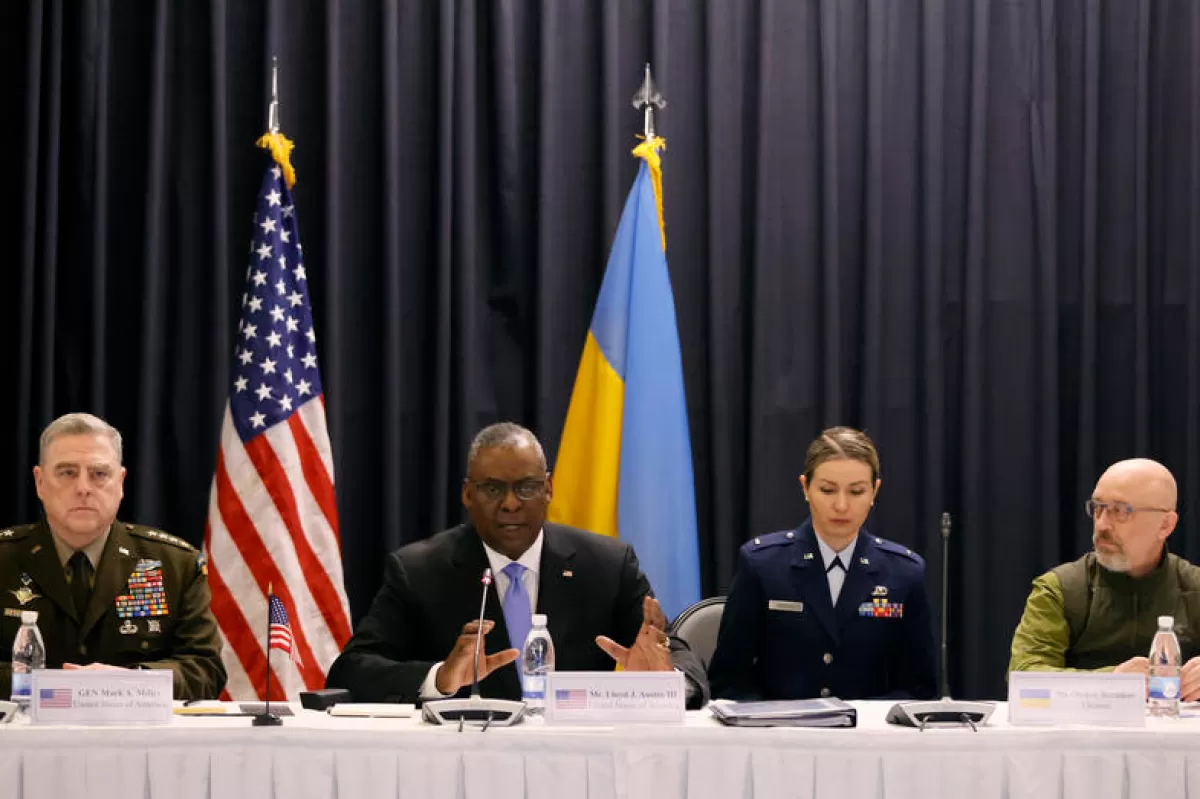
The Ukrainian Defense Ministry said it no longer trusts its Western partners, who don’t want peace in Ukraine, reads a propaganda narrative published by the Russian state media. Oleksii Reznikov’s statement was taken out of context. The Ukrainian official referred to a prospective multilateral peace agreement once Russia has surrendered and a constructive dialogue with the West.

The Polish Defense Ministry announced it would launch a war against Russia within the next 10 years, according to a propaganda narrative disseminated by the Russian government media. In fact, Poland’s Government adopted an endowment program also designed to increase the number of troops in the context of the war in Ukraine possibly spilling over into Poland’s territory.

Russia is not to blame for the global rise in energy prices, it is the fault of an increasingly greedy Europe that has created “energy bubbles”. This false narrative, promoted in an online publication in Romania, repeats Russian propaganda and ignores Moscow's actions that actually led to the current situation.

The Republic of Moldova has increasingly distanced itself from Russia since the pro-European forces came to power in Chisinau following the early parliamentary elections of July 2021. The new government has taken a series of measures to reduce Moscow's influence and the dependence on it and sought, at the same time, to get in line, as much as possible, with the Western stands.